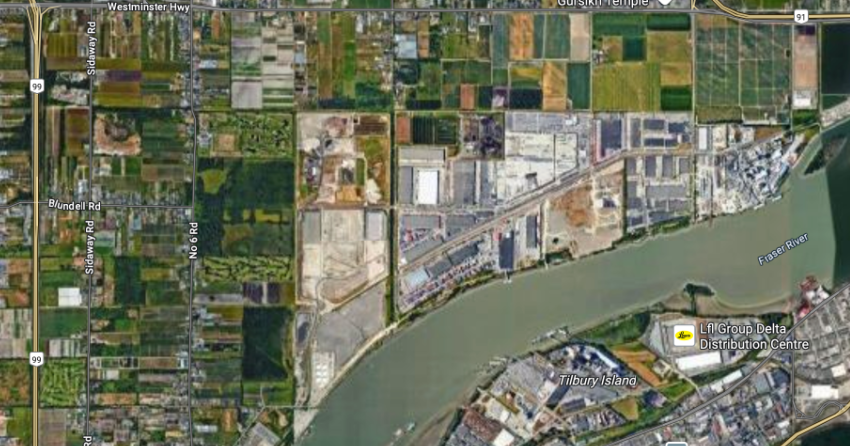Search KamloopsBCNow
- Food & Drink
- Biz+Tech
- Columns
- Travel & Lifestyle
- Arts & Culture
- News & City Info
- Events
- Webcams
- Advertise
- Real Estate
- Contests
- Best Of the city
- Faces of Kamloops
- More
- Real Estate Listings
- Subscribe
- Contact
First of all, let's clarify what 'extinguishment' is.
When applied to contract law it nullifies, cancels or terminates legal claim.
Without extinguishment of Indigenous rights over private property, Aboriginal groups can demand title of private property and get it.
That scenario came into sharp focus this week when the BC Supreme Court confirmed Cowichan Tribes title in Richmond for 780 acres along No. 6 Road and fishing rights in the Fraser River.
Some of the land is Crown land, meaning it's in government hands, some is owned by the City of Richmond, but a lot of it is also private property from high-end private homes and a golf course to a Walmart and a Wayfair depot.
Title gives Cowichan Tribes the legal capacity to eject private landowners if it wants to.
Now, Cowichan Tribes have made no such demands for the return of the properties that are privately owned.
But, the possibility exists.

The fact that the BC Supreme Court recognized Aboriginal title for the private property shakes the very foundation of what British Columbians cherish about home and-or business ownership -- that they actually own the property they purchased.
It puts private property ownership in BC in jeopardy and could affect property values negatively.
Any sort of uncertainty about property ownership knocks consumer, business and market confidence.
It seems Aboriginal title is protected under the Constitution, but private property rights are not.
The BC government plans to appeal the BC Supreme Court decision in an effort to protect the rights of private property owners.
However, the BC government stops short of seeking extinguishment of Indigenous rights over private property so the likes of the Cowichan Tribes/Richmond decision doesn't happen again.
NowMedia Group reached out to the BC Attorney General's office to find out if extinguishment is being pursued.
We received this written statement: "Government is committed to protecting and upholding private property rights while advancing the critical work of (Indigenous) reconciliation. We are not able to comment further as the matter remains in litigation."

In a separate statement, BC Attorney General and Deputy Premier Niki Sharma said:
"This ruling could have significant unintended consequences for fee simple private property rights in B.C. that must be reconsidered by a higher court. We believe it must be reconsidered on appeal."
Much the same from the federal government when NowMedia contacted the agency responding to the Cowichan Tribes/Richmond case.
"The Government of Canada continues to support and encourage Reconciliation as a concrete step toward advancing meaningful relationships between governments and First Nations, Inuit and Metis Peoples," reads the statement.
"Transport Canada is reviewing the decision closely to assess the implications and determine how best to move forward. As this work is ongoing, Transport Canada is not in a position to comment further."
In an interview with NowMedia video host Jim Csek, a former senior counsel to the BC government, Geoff Moyse, criticized the provincial and federal governments for leaving private property owners exposed by this and touted extinguishment as the best legal defence for private property owners.
Read and see more of that interview here: